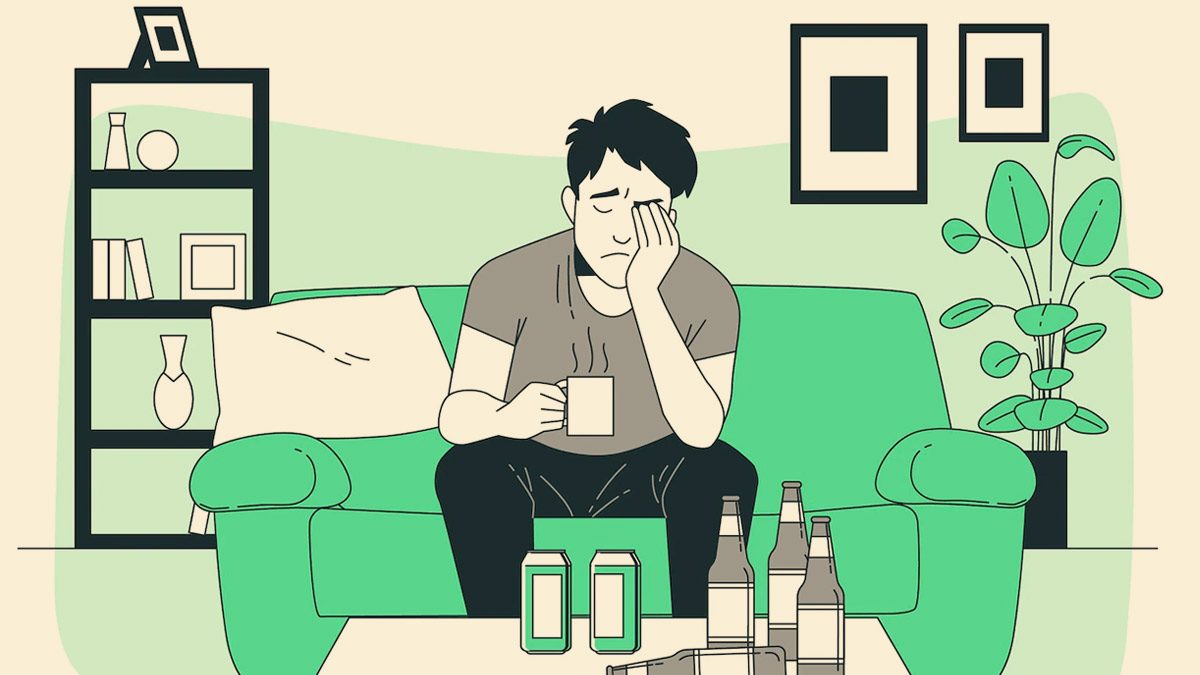Hangxiety, a term coined to describe the blend of a hangover and anxiety, is a common experience for many individuals who have indulged in alcohol consumption. The combination of physical discomfort and psychological unease can leave individuals feeling emotionally drained and mentally overwhelmed. However, there are several strategies that individuals can employ to cope with hangxiety from the comfort of their own home. In this article, we’ll explore some effective coping techniques for managing hangxiety and promoting emotional well-being.
1. Hydration and Nutrition
One of the first steps in managing hangxiety is to prioritize hydration and nutrition. Alcohol consumption can lead to dehydration and depletion of essential nutrients, exacerbating feelings of fatigue and discomfort. Drinking plenty of water and consuming nourishing foods can help replenish lost fluids and nutrients, aiding in the body’s recovery process and alleviating physical symptoms associated with hangovers.
2. Gentle Exercise
Engaging in gentle exercise, such as going for a walk or practicing yoga, can be beneficial for both the body and mind. Exercise releases endorphins, which are natural mood lifters, and can help reduce feelings of anxiety and stress. Additionally, physical activity promotes circulation and detoxification, assisting the body in eliminating alcohol toxins and facilitating recovery.
3. Relaxation Techniques
Implementing relaxation techniques can help calm the mind and alleviate feelings of anxiety. Deep breathing exercises, progressive muscle relaxation, and mindfulness meditation are effective practices for promoting relaxation and reducing stress. Taking time to engage in these activities can provide a sense of peace and centeredness, allowing individuals to cope more effectively with hangxiety.
4. Self-Care Practices
Prioritizing self-care is essential for managing hangxiety and promoting emotional well-being. Engage in activities that bring you joy and comfort, such as taking a warm bath, listening to soothing music, or spending time in nature. Practicing self-compassion and self-kindness can help counteract negative self-talk and foster a sense of acceptance and self-love.
5. Limit Stimulants and Triggers
Avoiding stimulants and triggers that may exacerbate feelings of anxiety is crucial when coping with hangxiety. Limiting caffeine intake, avoiding stressful situations, and practicing healthy boundaries can help prevent additional stress and anxiety from escalating. Creating a calm and supportive environment at home can facilitate relaxation and promote emotional stability.
6. Seek Support
If hangxiety persists or becomes overwhelming, don’t hesitate to seek support from friends, family members, or a mental health professional. Talking about your feelings and seeking guidance from others can provide valuable insight and perspective. Additionally, therapy or counseling can offer effective coping strategies and support for managing anxiety and promoting overall well-being.
Hangxiety is a common and challenging experience for many individuals who have consumed alcohol. However, by implementing effective coping strategies and self-care practices, it is possible to manage hangxiety and promote emotional well-being at home. Prioritizing hydration, nutrition, relaxation, and self-care can help alleviate symptoms and facilitate the body’s recovery process. Additionally, seeking support from loved ones or a mental health professional can provide valuable resources and guidance on the journey toward healing and recovery from hangxiety. Remember that hangxiety is temporary and will pass with time and self-care.

